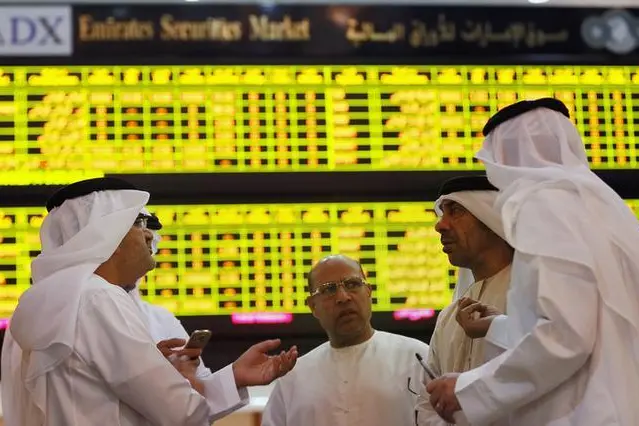PHOTO
The UAE is increasingly emerging as a bigger foreign investor and has been ranked among the world's top 20 nations in terms of foreign direct investment (FDI) outflows, according to a new global report.
The United Nations Conference on Trade and Development's (UNCTAD) World Investment Report 2019 revealed that FDI outflows from the UAE increased $1 billion year-on-year to $15 billion in 2018, making the country the 19th-largest foreign direct investor in 2018, improving one place.
Greenfield investments from the UAE to Africa more than doubled from $1.81 billion to $3.93 billion, while investments to developing Asian countries more than tripled from $6.18 billion in 2017 to $22.1 billion last year. Investment into the UAE from developed Asia doubled from $2.58 billion in 2017 to $5 billion.
While FDI outflow from the UAE to least-developed countries increased slightly from $1.39 billion to $1.54 billion, investment outflows to small island developing states increased from $63 million to $179 million.
FDI flows to the UAE remained largely unchanged in 2018 at $10 billion. Investment targeted a diverse range of sectors, from oil and gas to digital technologies.
A UNCTAD survey of investment promotion agencies revealed that the UAE and India - not traditionally in the top 20 of outward investor countries - were also considered as among the top 10 most important sources of FDI for the 2019-21 period.
Fahad Al Gergawi, CEO of Dubai FDI, said new opportunities for investors are arising from the UAE's recently-introduced FDI law, and the prospects for further future growth make Dubai and the UAE increasingly attractive.
"The UAE will continue to play a leading economic role in the Middle East region with Dubai as a pivotal hub in the global economy and a centre for business. The UAE should also continue to constantly improve strategic business factors such as investment facilitation, services and cost of doing business to have world-class standards in the UAE and compete with other leading business destinations," said Al Gergawi.
Iyad Abu Hweij, managing director of Allied Investment Partners, said over the course of a decade, the UAE has been consistent in terms of FDI inflows. He attributed the government's visionary policies, enhancement in quality of life for residents and world-class free trade zones as factors making the UAE appealing to international investors.
"Today, the UAE is viewed as a regional leader in different sectors and a hub for businesses looking to launch in the region. One of the key drivers of FDIs is political stability. The UAE has been able to demonstrate that it is one of the few politically-stable nations within the region," said Abu Hweij.
Massimo Falcioni, chief executive officer of Etihad Credit Insurance, said the UAE plays an important role in attracting FDI to the Middle East because of its strategic geographical location, modern infrastructures that facilitate business growth, and robust regulatory frameworks that promote and safeguard international investments.
"In order to sustain this momentum, dependable conditions that boost FDI need to be strengthened, including ease of doing business and access to funds as well as access to imports and exports," he said.
Falcioni said that efforts directed towards discussing and demonstrating the latest market intelligence and strategies on drawing FDI are also key. Moreover, work towards creating awareness among UAE businesses regarding the significance of risk mitigation solutions will help increase companies' capabilities to embark on international expansion.
Regional performance
The UNCTAD report said that FDI prospects for the Middle East were moderately positive, thanks to the introduction of new policies and investment facilitation measures in several countries such as the UAE, which has also started allowing 100 per cent foreign investment in certain industries.
Outward FDI from the Middle East reached a historic high of $49 billion in 2018, up from $39 billion in 2017, with multinational enterprises from Saudi Arabia and the UAE mainly responsible for the increase. FDI from Saudi Arabia almost tripled to $21 billion, mainly in technology, finance and infrastructure activities.
Saudi Arabia was the 14th-largest foreign investor with $21 billion worth of FDI outflow recorded last year compared to $7 billion in the previous year.
FDI flows to Middle East grew 3 per cent to $29 billion in 2018, halting an almost continuous 10-year downward trend, the UNCTAD report said.
"Inflows were still only one-third of their $85 billion peak in 2008. The small rise in FDI can be attributed to... a pickup of investment in Saudi Arabia, which compensated for declines in other countries," the report said.
Globally, Japan was the world's largest foreign investor last year with FDI outflow at $143 billion followed by China, France, Hong Kong, Germany, the Netherlands, Canada and the UK.
Last year, global flows of FDI fell by 13 per cent, to $1.3 trillion in 2018 from a $1.5 trillion in 2017, the third consecutive year's fall in FDI.
Copyright © 2019 Khaleej Times. All Rights Reserved. Provided by SyndiGate Media Inc. (Syndigate.info).





















